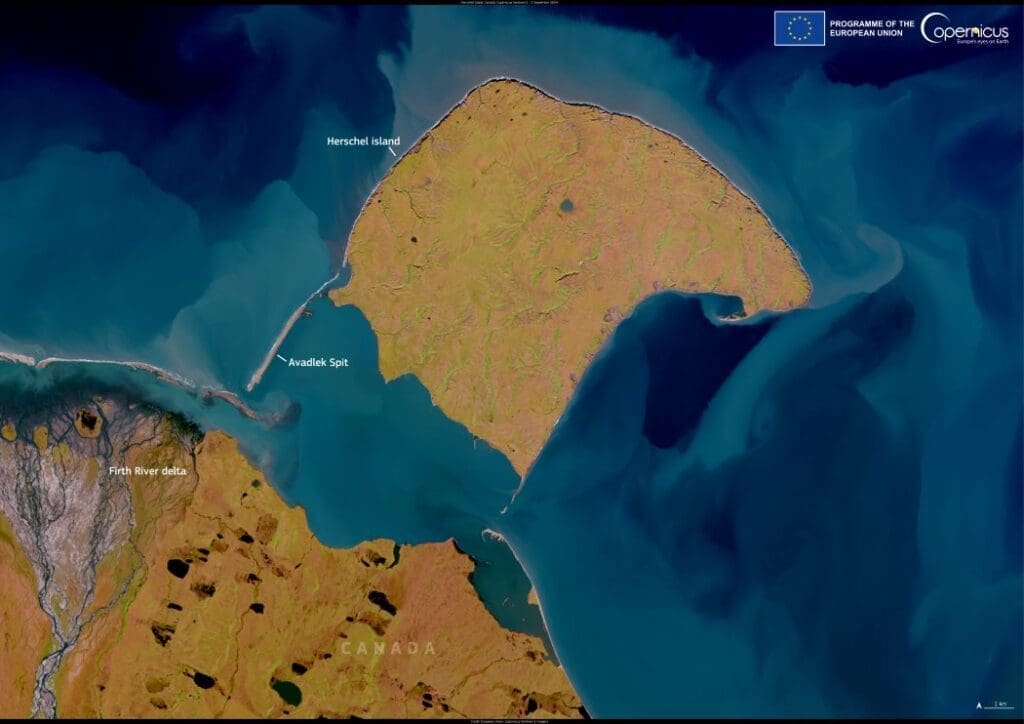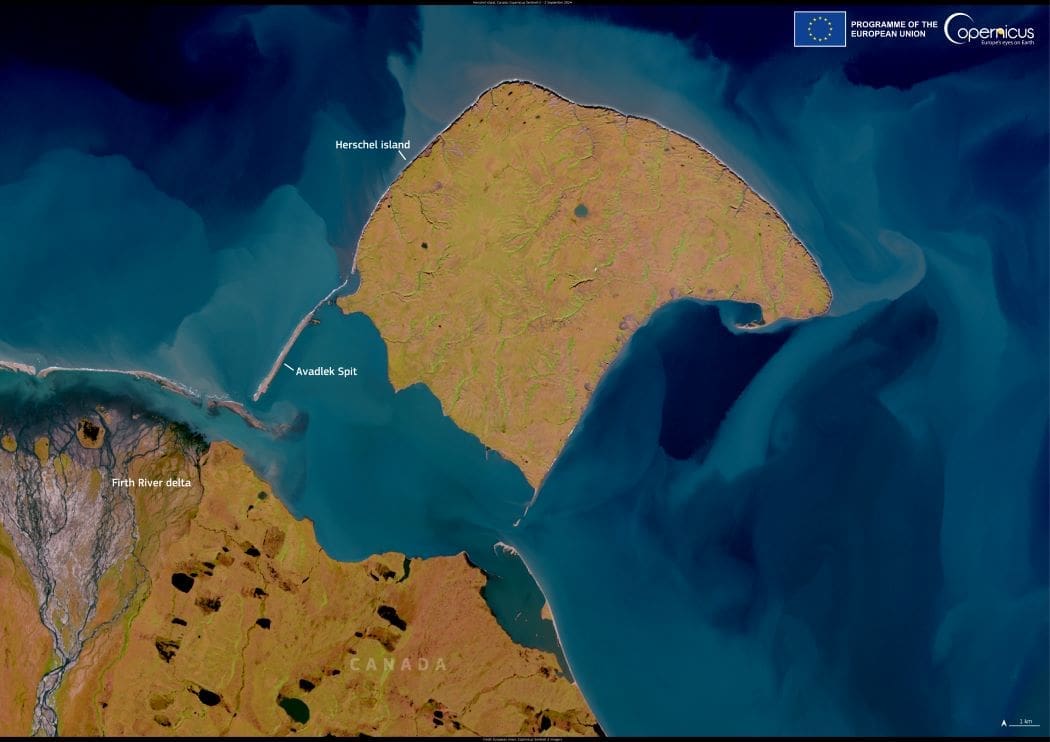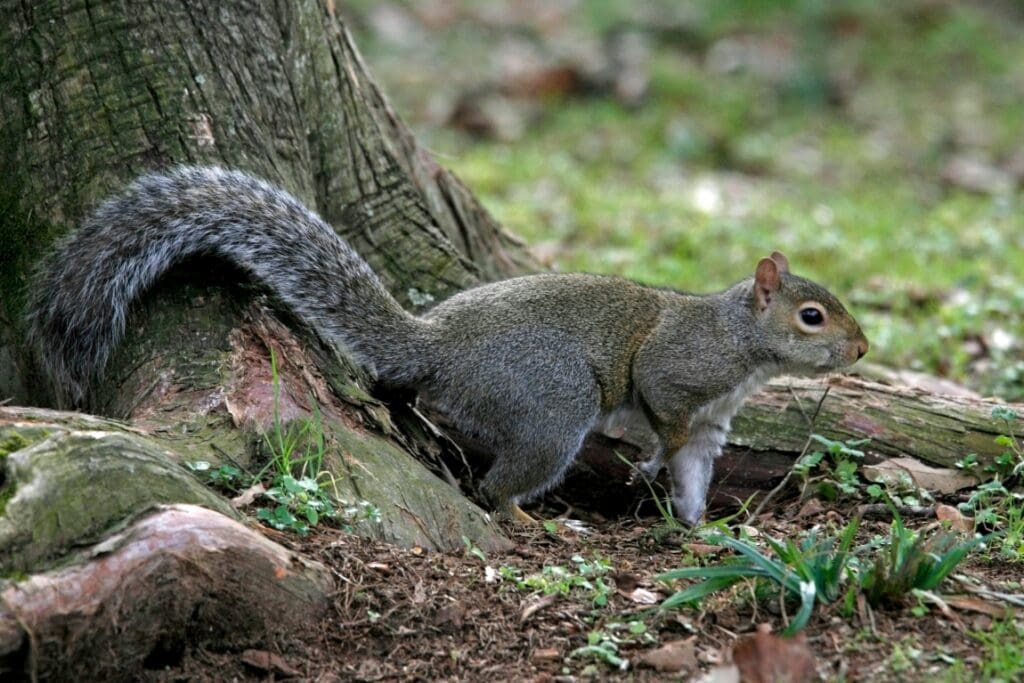This image, captured by a Copernicus Sentinel-2 satellite on 2 September 2024, highlights the dynamic Arctic coastline of Canada’s Yukon territory, where the Beaufort Sea meets the land. The image features Herschel Island (Qikiqtaruk), Avadlek Spit, and the Firth River delta — areas shaped by the forces of coastal erosion and sediment transport.

Swirling sediment patterns in the sea reveal the movement of material carried by river outflows, tidal currents, and the ongoing erosion of Arctic shores. Coastal retreat is a growing concern in the region, with scientists reporting in July 2024 that rising sea levels and thawing permafrost are causing sections of Herschel Island to erode rapidly. In response, historic whaling-era buildings were relocated inland to prevent their loss to the encroaching sea.
Copernicus Sentinel-2 satellite data plays a key role in tracking sediment movement, monitoring shoreline changes, and assessing climate-driven impacts in the Arctic, supporting conservation efforts and long-term adaptation planning.
Featured image credit: European Union, Copernicus Sentinel-2 imagery




